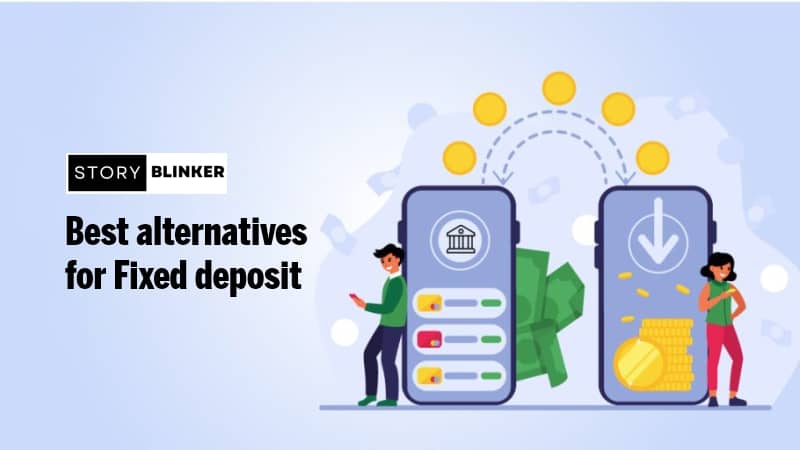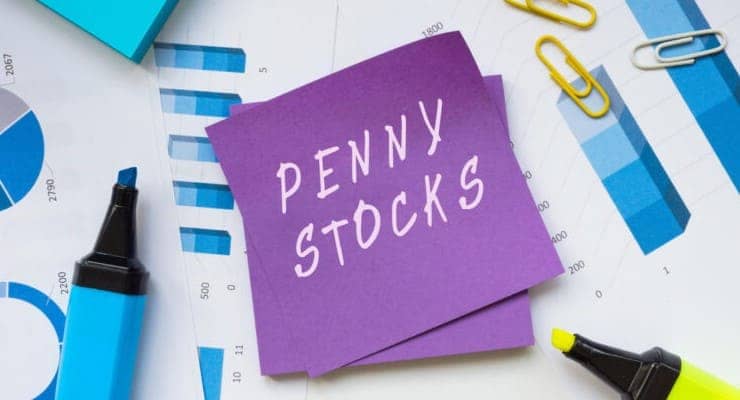
Top 20 Best Alternatives to Fixed Deposits in India
Fixed deposits have long been favored for their predictability and safety in financial planning. However, the financial landscape is evolving rapidly, compelling investors to seek alternatives that provide better returns without sacrificing security. This article delves into the Top 20 Alternatives to Fixed Deposits in India, offering a comprehensive guide to lucrative investment options that enable you to grow your wealth while managing risks effectively.
Exploring Better Returns: Unraveling the Alternatives
Top 20 Best Alternatives to Fixed Deposits in India
This section takes a deep dive into a diverse range of investment avenues that offer attractive returns while prioritizing the safety of your principal. Whether you’re a risk-averse investor or an individual seeking high-growth opportunities, these alternatives span a spectrum of choices to match your financial objectives.
High-Interest Savings Accounts: Your Trusted Ally for Money Management
Modern banking institutions now provide high-interest savings accounts that can outshine traditional fixed deposits. These accounts blend the liquidity of savings accounts with competitive interest rates, making them a strong alternative for those cautious about risks.
Government Bonds: The Confluence of Security and Returns
Government bonds, backed by the credibility of the government, offer a safe haven for investment. With assured interest payments and the potential for capital appreciation, these bonds serve as a reliable choice for conservative investors.
Mutual Funds: Simplifying Diversification
Mutual funds pool resources from multiple investors to create a diversified portfolio of stocks, bonds, or other securities. With professional management and liquidity, they present a robust alternative to fixed deposits.
Equity Linked Savings Schemes (ELSS): Building Wealth While Saving Taxes
ELSS funds combine tax-saving benefits under Section 80C of the Income Tax Act with the opportunity for higher returns through equity investments. They come with a lock-in period and can act as a powerful tool for wealth creation.
National Pension System (NPS): Crafting a Secure Retirement Plan
The National Pension System offers a structured pension plan that blends equity and debt investments. It’s an effective long-term investment avenue, especially for individuals planning for retirement.
Real Estate Investments: Realizing Returns Through Tangible Assets
Investing in real estate offers the potential for rental income and capital appreciation. It represents a tangible asset that can be leveraged for long-term financial gains.
Gold Investments: Safeguarding Wealth Amidst Uncertainty
Gold has withstood the test of time as a safe-haven asset. Whether in physical form or through Gold Exchange Traded Funds (ETFs), gold investments can act as a hedge against economic uncertainties.
Peer-to-Peer Lending: Empowering Both Borrowers and Lenders
Peer-to-peer lending platforms connect borrowers with individual lenders, offering an alternative investment avenue with promising returns.
Corporate Fixed Deposits: A New Dimension to Tradition
Corporate fixed deposits provide higher interest rates compared to their bank counterparts. While they carry slightly higher risks, they can be a rewarding option for savvy investors.
Initial Public Offerings (IPOs): Riding the Wave of Early-Stage Growth
IPOs offer a chance to invest in companies during their infancy. While they involve higher risks, successful IPO investments can yield substantial returns.
Index Funds: Passive Investing for Consistent Returns
Index funds replicate the performance of market indices, offering steady returns over time. With lower fees, they are ideal for investors seeking reliable growth.
Real Estate Investment Trusts (REITs): Participating in Real Estate Without Ownership
REITs enable investors to engage in real estate projects without direct property ownership. They introduce a new facet to real estate investments with regular dividend payouts.
Commodities Trading: Diversifying Beyond Conventional Assets
Investing in commodities such as metals, oil, and agricultural products can provide diversification benefits and serve as a hedge against inflation.
Exchange-Traded Funds (ETFs): Simplifying Market Exposure
ETFs, traded on stock exchanges, provide exposure to various asset classes. They offer flexibility, liquidity, and lower expenses compared to mutual funds.
Cryptocurrency Investments: Navigating the Digital Frontier
Cryptocurrencies like Bitcoin and Ethereum have captured attention as alternative investments. While characterized by high volatility, they demonstrate remarkable growth potential.
Frequently Asked Questions (FAQs)
Q: Do alternative investments carry higher risks than fixed deposits?
A: While some alternatives are riskier, many strike a balance between risk and return. Diversifying your portfolio based on your risk tolerance is crucial.
Q: What’s the recommended investment duration for these alternatives?
A: Investment durations vary across alternatives. While fixed deposits have fixed tenures, options like mutual funds offer flexibility for short-term and long-term goals.
Q: How can I choose the most suitable alternative for my needs?
A: Evaluate your financial goals, risk tolerance, and investment horizon. Seeking guidance from a financial advisor can aid in making informed decisions.
Q: Can I combine multiple alternatives in my investment portfolio?
A: Absolutely, diversification is key. By blending different alternatives, you can effectively manage risk and optimize returns.
Q: Are there tax implications associated with these alternatives?
A: Yes, different alternatives come with varying tax treatments. Some offer tax benefits, while others might have tax implications based on gains and holding periods.
Q: Is seeking professional advice necessary?
A: Though not obligatory, consulting financial experts can aid in making well-founded investment choices aligned with your economic aspirations.
Conclusion
The financial realm presents many alternatives to fixed deposits, each catering to diverse investor preferences. From traditional avenues like government bonds to contemporary options like cryptocurrencies, many opportunities await exploration. As you embark on this journey, conduct thorough research, gauge your risk tolerance, and align your choices with your long-term financial goals. Through prudent diversification, you can optimize returns while effectively managing risk.
Related Posts

What Is DeFi? Understanding Decentralized Financeadmin . June 19, 2023

Best Alternatives for Fixed Depositadmin . November 28, 2023

Top Investment Options in India 2023admin . February 10, 2023

Top 10 Income Sources for Financial Successadmin . August 16, 2023

What exactly is Cryptocurrency and how does it work?admin . April 3, 2023

Top 6 Best Cryptocurrency That Crypto Whales Are Buy Rightadmin . January 25, 2022

What is Blockchain? Easy Enlightenment of Blockchain for Dummiesadmin . June 21, 2022

Stock Market Holidays 2023: Trading Schedule for Novemberadmin . October 30, 2023

Jim Cramer Advises Investors To Avoid Crypto Or Other Speculativeadmin . September 15, 2022
Latest Posts

Exploring the Best Cash Advance Apps of 2024 April 8, 2024

Top 34 Passive Income Ideas in 2024 March 19, 2024

Top 10 Penny Stocks to Buy Canada 2024 February 23, 2024

Best Canadian Artificial intelligence stocks under $1 2024 February 23, 2024

Top Artificial Intelligence Stocks Canada 2024 February 20, 2024

